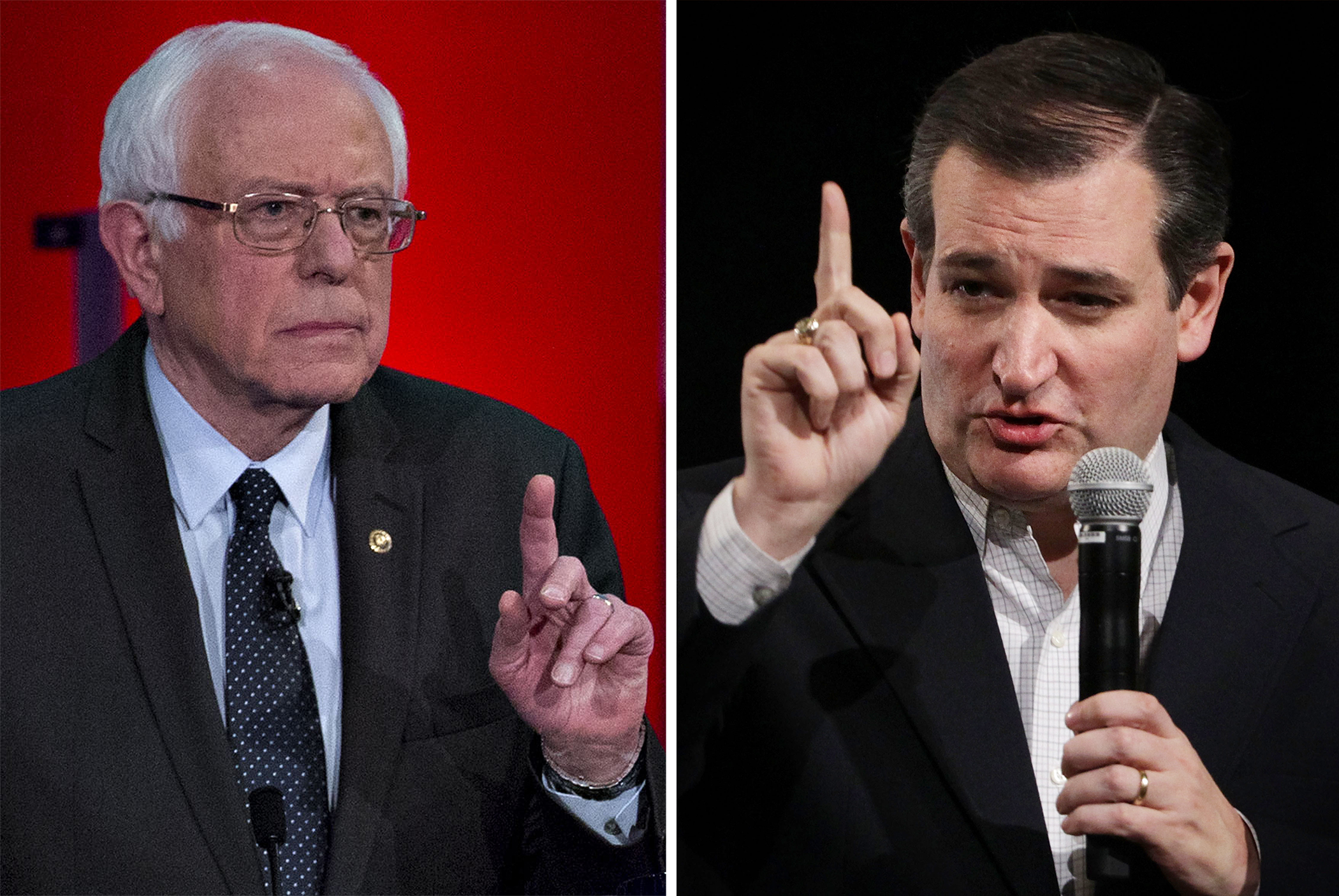Well, it depends on who you ask. For the winners last night, Bernie Sanders and Ted Cruz, it’s proof positive that the electorate still hasn’t settled on the “front runners” in either party. If you’re Donald Trump or Hillary Clinton, on the other hand, you might consider it a “bump” in the road on your way to the nomination. Either way, Wisconsin has done little to “settle” the race, rather it has increased the likelihood of extending it until June 7th, and quite possibly beyond to the conventions.
Report on the GOP side from Bloomberg:
It was a very good night for Ted Cruz.
A rough stretch for Republican presidential front-runner Donald Trump culminated in the Texas underdog steamrolling to a decisive victory in Wisconsin on Tuesday night.
“Tonight is a turning point. It is a rallying cry. It is a call from the hard-working people of Wisconsin to the people of America,” a boisterous Cruz said at his watch party at the American Serb Hall Banquet in Milwaukee, where a packed room of fans savored the moment while sipping on Bud Light and Stella Artois beer.
“As a result of tonight … I am more and more convinced that our campaign is going to earn the 1,237 delegates needed to win the Republican nomination. Either before Cleveland or at the convention in Cleveland we will win a majority of the delegates and we will beat Hillary Clinton in November.”
But Cruz wakes up to a discomfiting reality Wednesday: he needs about four-fifths of remaining delegates to win the Republican presidential nomination. Even cutting into Trump’s still-large lead in the primary is a stretch as surveys show him ahead in the three most delegate-rich states yet to vote: New York, Pennsylvania, and California.
David Wasserman, an election analyst at the Cook Political Report, said Cruz’s victory bodes “well for him in Indiana, South Dakota, Nebraska, and other more culturally conservative states that have yet to vote.”However, “Trump is likely to erase whatever poor performance he has in [Wisconsin with] a big win in New York on April 19—he could win almost all 95 delegates there,” Wasserman added.
In other words, Wisconsin was huge for Ted Cruz. However, it might not matter if Trump regains his footing in New York. Furthermore, Cruz is still facing the reality that time and delegate math is not on his side. He’d have to win out from here forward, a scenario that is very unlikely given the Trump-friendly territory we’re heading into.
Cruz’ victory last night simply increases the chances of a contested convention, which is where the Texas Senator ultimately hopes to prevail and win the nomination. In that regard, he did what he needed to do in Wisconsin.
Meanwhile, on the Democratic side, CNN reports that Hillary Clinton feels she’s been dealing with Bernie Sanders long enough:
Hillary Clinton questioned Bernie Sanders’ fidelity to the Democratic Party in an interview published on Wednesday, a step further than she usually goes when talking about Sanders and the party.
“He’s a relatively new Democrat, and, in fact, I’m not even sure he is one,” Clinton said during an interview with Politico’s Glenn Thrush that taped on Friday in Syracuse. “He’s running as one. So I don’t know quite how to characterize him. I’ll leave that to him.”
Throughout this presidential campaign, Clinton has routinely touted her ties to the Democratic Party, a jab at Sanders, a politician who has caucused with Democrats since 1991 but has never been a member of the party.
“I am also a Democrat and have been a proud Democrat all my adult life,” Clinton said Sunday in Wisconsin. “And I think that is kind of important if we are selecting someone to be the Democratic nominee of the Democratic Party.”
On the same day, at a Democratic dinner in Milwaukee, Clinton said, “I am a proud Democrat and I support Democrats up and down the ticket. Always have and always will.”
Clearly the primary has gone on much longer than Hillary expected, and Sanders is winning more states than most people would have forecast. Wisconsin enjoyed bucking the trend in both parties by elevating the challengers against the front runners. Sanders will benefit greatly from that and it gives him the best possible shot he has to work some magic in New York on April 19th.
As far as pledged delegates go, it will be a very tough path for Sanders according to FiveThirtyEight. That is why the Sanders campaign has turned some attention to the Democratic Superdelegates with the intention of luring some away from Clinton, or convincing some of the uncommitted to join Team Sanders. If he was able to make a dent in Superdelegates, it would serve to seemingly even out the field.
If you’re rooting for Bernie, then train your eyes on New York and hope for the best. If Sanders pulls an upset in the Empire State, then Hillary Clinton would have some serious trouble on her hands. However, if Clinton prevails, as most recent polling indicates she might, then it could extinguish The Bern.
However, despite the odds, I’m not ready to call Sanders down in New York. Hillary is leading by 10 points on average, which is considerably tighter than polling from three weeks ago where she was leading anywhere from 20 to 40 points. The gap has narrowed and the stage is set for an epic battle.
The Democratic Debate next week could be the most pivotal of this cycle.
Donate Now to Support Election Central
- Help defend independent journalism
- Directly support this website and our efforts
